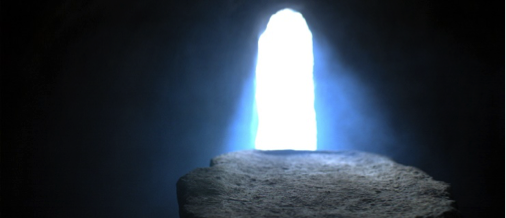
I wish I was more familiar with the Psalms. They are brilliant. I am convinced there is a psalm that names and gives hope to every conceivable situation we could ever find ourselves in. Here’s a line from Psalm 25: “No one has ever trusted in the Lord and been put to shame.” This is a pretty good mantra for Easter Sunday morning. Trust is the key, though.
A number of years ago, although it could have easily been in the recent past, a black woman’s son was shot and killed by a white police officer. When this woman was asked whether she would donate her son’s heart to a white man, she said, “Yes, because I want to know that my son continues this mystery of life and death in the human race.” We have to ask ourselves: what was the life this woman had access to, that most people don’t? It seems without any planning on our part, we are witnesses to these extraordinary human beings who emerge here and there and everywhere in all of history. This woman is one such being.
It makes me think that the resurrection of Jesus, as unique as it was, was not a one-time anomaly, nor a one-time miracle. It was much more than that. It was the revelation of where all reality–not just the reality of Jesus–is moving toward. God has one and only one job description. God’s job description is to turn death into life. Jesus’ life is the map, the blueprint, the promise, the pledge, the guarantee of what is happening everywhere. He is the standard bearer. Jesus is a statement about how reality works. What we are saying about the Christ, we are saying about reality, all summed up in this one person. If we can switch our minds to think that way, then we will realize what a universal, all-encompassing feast Easter really is. So, we do not come to Easter Mass to cheer on God because He worked a great miracle 2000 years ago. We come to celebrate and to open ourselves to the pattern of dying and rising exemplified in Jesus—the pattern of all reality.
A quote from Fr. Richard Rohr; he writes, “Death is not just physical dying, but going to the full depth of things, hitting the bottom, going the distance beyond where I am in control. And in that sense we probably all go through many deaths in our life. And that’s the tipping point. What are you going to do at that point? The vast majority of people turn bitter, look for someone to blame, and close down. So, these people’s death is indeed death for them, for there will be no more growth after that. But, when you go to the full depth of anything, even ironically the depth of your own sin, you always come out the other side.”
When you come out the other side, like this woman whose son was killed, you know you have been led there, you been taken there. The correct way to speak about the feast of Easter is not to say Jesus rose from the dead, as if it was a self-generating miracle. The correct way to say it is: Jesus was raised from the dead by the Father. When you know you are being led, when you are being taken, by a larger force—that’s not your own–and you trust that force, that’s what it means to be saved. It doesn’t mean you go to church. It means you have walked through the mystery of transformation, just like that woman did, and you’ve come out the other side.
God has found the most ingenious way to transform the human heart. He uses the very thing that would destroy you—the tragic, the sorrowful, the painful, the unjust, the impossible–deaths that lead us all to the bottom of our lives. And in that place of total loss of control, that is when the miracle happens. That is when the greatest transformation happens. God uses what would destroy you to transform you. It is only with a certain maturity and honesty that you and I can look back at all the worst moments of our lives, the bottom moments, the moments that felt for sure like death, and say, “God was in that…and God was in that…and God was even in that.” When you were going through it, you felt powerless and you may have even felt that God had abandoned you. But it was in that gestation period–and gestation always happens in darkness–that someone or something was building a bridge to you. It’s only when you got on the other side that you realized you had been carried across. None of us crosses over this gap by our own effort, our own merit, our own purity, our own perfection. We are all carried across by an unearned grace. Trust is the key to our faith, and Jesus taught us how to trust. No one who has ever trusted in this kind of God will ever be put to shame.
Fr. Phil Mulligan
APR
2021

About the Author: